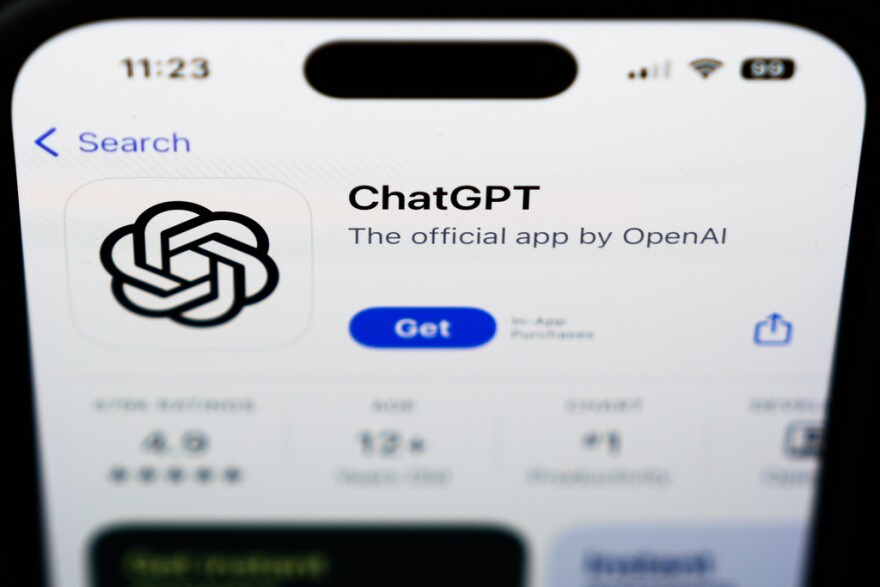BETHLEHEM, Pa. — Bethlehem Area School Board is considering a new policy on generative artificial intelligence — a growing technology that’s sparked debate among educators and district leaders across the country.
If the proposed policy is approved in coming weeks, Bethlehem Area would join other Lehigh Valley school districts that have adopted their own generative AI policies over the past year.
They include Allentown, East Penn, Parkland and Northern Lehigh.
“I do think it’s important that we teach students how to use AI because they are going to use it regardless.”Bethlehem Area board member M. Rayah Levy
“I do think it’s important that we teach students how to use AI because they are going to use it regardless,” Bethlehem Area board member M. Rayah Levy said at a Monday committee meeting.
Artificial intelligence can “mimic human intelligence, such as analyzing data, recognizing patterns and making decisions,” according to the proposed Bethlehem Area policy 815.3.
The policy is an adapted version of a 2024 template from the Pennsylvania School Board Association.
Generative artificial intelligence tools are a type of AI that can create content through text, images, audio, video and code, the policy adds.
For instance, ChatGPT has gained widespread attention in the education world for its ability to compose essays for students, and there are also other tools students can use that complete math problems.
Concerns about AI use
Such tools present concerns about students’ ability to complete work without the assistance of AI and how to ethically use AI tools when acceptable.
“I see students after they graduate from our schools at the college level, and I will tell you, [there’s] a desperate need to clarify how these tools get used.”Karen Beck Pooley, Bethlehem School Board member and Lehigh University professor
“I’ve got big problems about how we introduce this material,” school Director Karen Beck Pooley, a Lehigh University political science professor, said.
“I see students after they graduate from our schools at the college level, and I will tell you, [there’s] a desperate need to clarify how these tools get used.”
Beck Pooley also warned the district to “tread very carefully” when it comes to letting students treat generative AI as a source itself, raising concerns about plagiarism.
Alternatively, she said AI tools could be used to find sources students would then actually cite in their work.
“You don’t want to be citing generative AI in a paper because who knows what it will run into, and you’re not necessarily conveying how that might have been some crazy fever dream the computer had,” she said.
According to the first public draft of the policy, Generative AI tools would be cited when content is “quoted, paraphrased or otherwise used in the student’s work.”
What's in the policy?
Bethlehem Area’s proposed policy maintains that generative AI “can support a dynamic working and learning experience” when used in a “responsible and ethical manner.”
It would only allow for use of district-authorized tools.
The proposed policy also calls for professional development training for staff on how to use AI in the classroom and for lesson planning.
Both staff and students would get training on topics, such as ethics, citations and personal security, as well as the limitations of AI and how to critically analyze AI content.
“We already don’t have a discerning public when it comes to Facebook posts and chaos."Silagh White, Bethlehem Area School Board member
Under the proposed policy, the district would ban the use of generative AI in employee hiring, promotion, demotion or firing.
It also would ban the technology from being used to make final calls on student grades.
School Director Silagh White also raised concerns about the consumption of AI and whether students are able to tell the difference between real information and AI generated content.
“We already don’t have a discerning public when it comes to Facebook posts and chaos,” she said.
Superintendent Jack Silva said the proposed policy addresses that concern.
'Critically evaluate content'
In the AI-generated content verification section, the policy calls for students and staff to “critically evaluate content” and to “understand the importance of cross-referencing with trusted sources.”
School Director Levy, who also is a Moravian University librarian, similarly said it’s important teachers help students use critical thinking skills to determine what content is coming from AI versus scholarly works.
"I think we have to look more deeply at analyzing and how we're going to actually go through the process of educating our kids in the use of AI.”Bethlehem Area School Board Director M. Rayah Levy
Levy, who serves on an AI team at Moravian, said it’s essential the district prepares students for understanding and using AI before they get to college.
She also said the district should consider providing workshops for parents on generative AI so they can assist their students when needed.
“I’m happy that there are certain things here" in the policy draft, she said.
“But I think we have to look more deeply at analyzing and how we're going to actually go through the process of educating our kids in the use of AI.”


